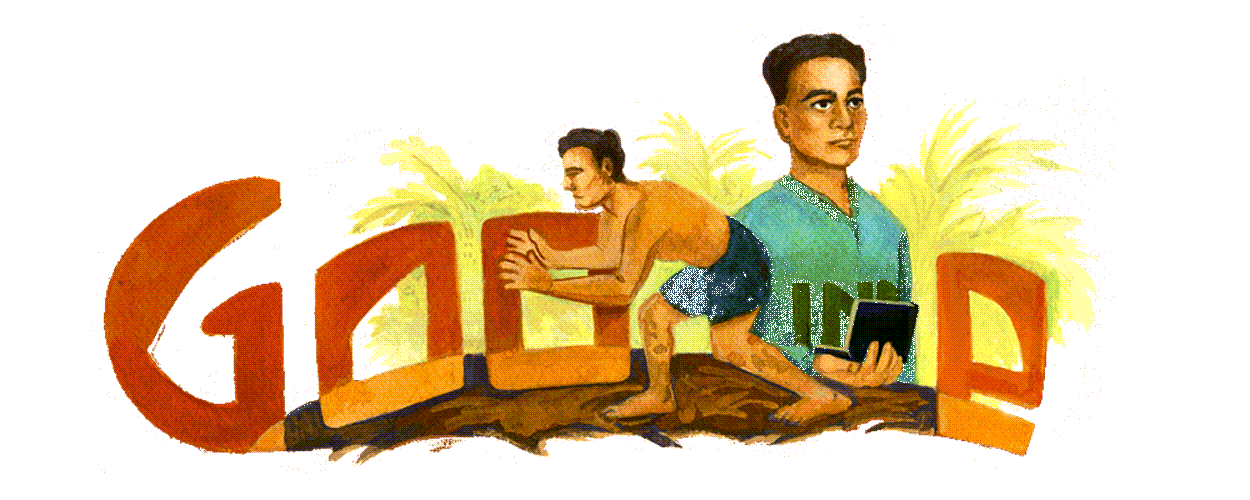Khashaba Dadasaheb Jadhav: India’s Wrestling Hero and Olympic Medalist

Image Courtesy: Google Doodle
Khashaba Dadasaheb Jadhav (15 January 1926 – 14 August 1984) became independent India’s first individual athlete to win an Olympic medal at the 1952 Summer Olympics in Helsinki.
Life and Career
Khashaba Dadasheb Jadhav was born on 15 January 1926 in the village of Goleshwar in Maharashtra, India. Jadhav inherited the athleticism of his father, one of the best wrestlers in the village. In addition to excelling as a swimmer and runner, 10-year-old Jadhav began training with his father as a wrestler.
In spite of Jadhav’s small stature and light feet, he was one of the best wrestlers at his high school. Throughout his wrestling career, Jadhav has won multiple state and national championships under the guidance of his father and professional wrestlers. In particular, he excelled at dhak, which is a wrestling move in which an opponent is held in a headlock before being thrown to the ground.
During the 1940s, Jadhav’s continued success attracted the attention of the Maharaj of Kolhapur. Having dominated an event at the Raja Ram college, the Maharaj of Kolhapur decided to fund his participation in the 1948 Olympic Games in London. Jadhav was not familiar with international wrestling rules and rarely wrestled on regulation mats. He competed against the best and most experienced flyweight wrestlers in the world at the Olympics. In spite of this, he managed to place 6th, the highest-ever finish for an Indian wrestler.
Jadhav was dissatisfied with his performance and spent the next four years training harder than he had ever done in the past. As a result, he moved up a weight class to bantamweight, a weight class that featured an even greater number of international wrestlers. As a wrestler at the 1952 Helsinki Olympics, Jadhav defeated wrestlers from Germany, Mexico, and Canada before losing to the eventual champion. As the first medal winner from an independent India, he earned a bronze medal. A procession of bullock carts carried him through his hometown as crowds awaited his return.
Before the next Olympics, Jadhav injured his knee, which ended his wrestling career. Later, he worked as a police officer. In 1992-1993, the Maharashtra Government awarded him the Chhatrapati Puraskar posthumously. In his honor, a wrestling venue was built for the 20210 Delhi Commonwealth Games. He died on 14 August 1984 at an age of 58.
Award and Legacy
He competed in the 1952 Helsinki Olympics and won the bronze medal in the men’s freestyle bantamweight category, becoming the first Indian to win an individual medal at the Olympics. He also competed in the 1948 London Olympics and the 1956 Melbourne Olympics.
Jadhav’s achievement was highly significant for India, as it came at a time when the country was still struggling for independence from British rule. His medal is considered a source of inspiration for many young athletes in India, and is considered a symbol of the country’s emergence as a major player in the international sports arena.
Despite his achievements, Jadhav’s legacy has been largely overlooked and unrecognized by the Indian government. Despite several petitions, the Indian government has not yet honored him with the Bharat Ratna, India’s highest civilian award. However, his legacy is celebrated and honored by the Wrestling Federation of India (WFI) and the Maharashtra state government.
Observer Voice is the one stop site for National, International news, Sports, Editor’s Choice, Art/culture contents, Quotes and much more. We also cover historical contents. Historical contents includes World History, Indian History, and what happened today. The website also covers Entertainment across the India and World.

